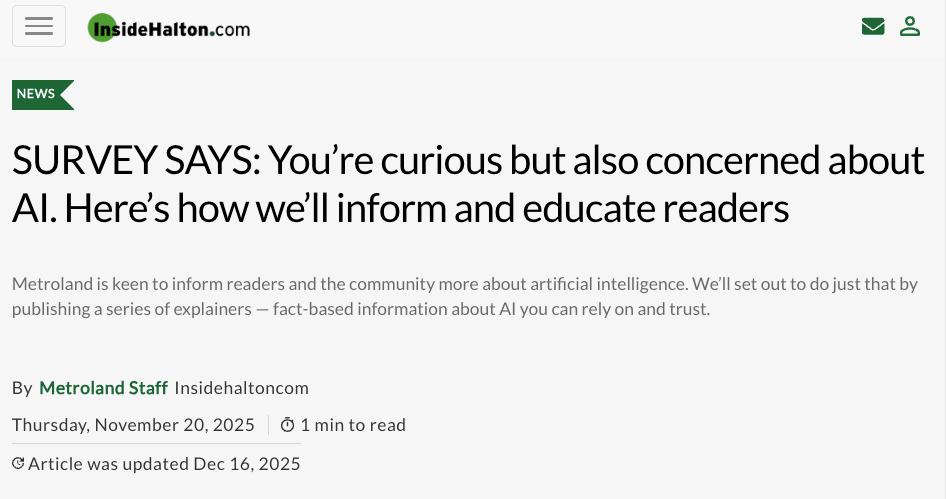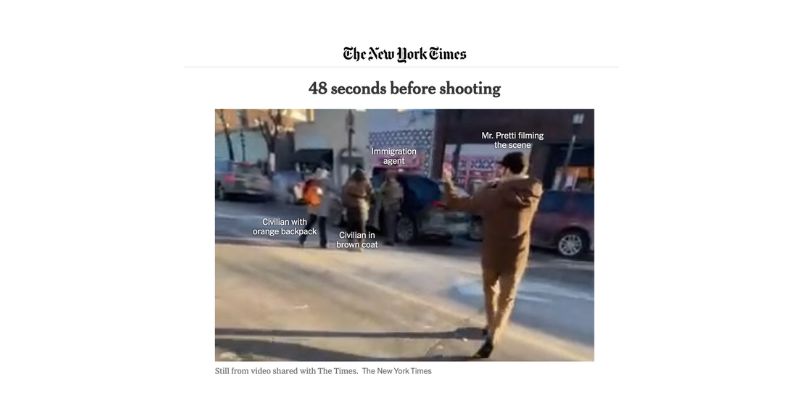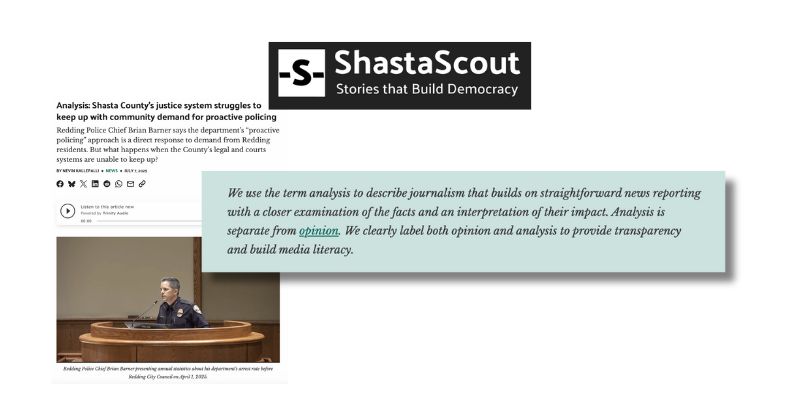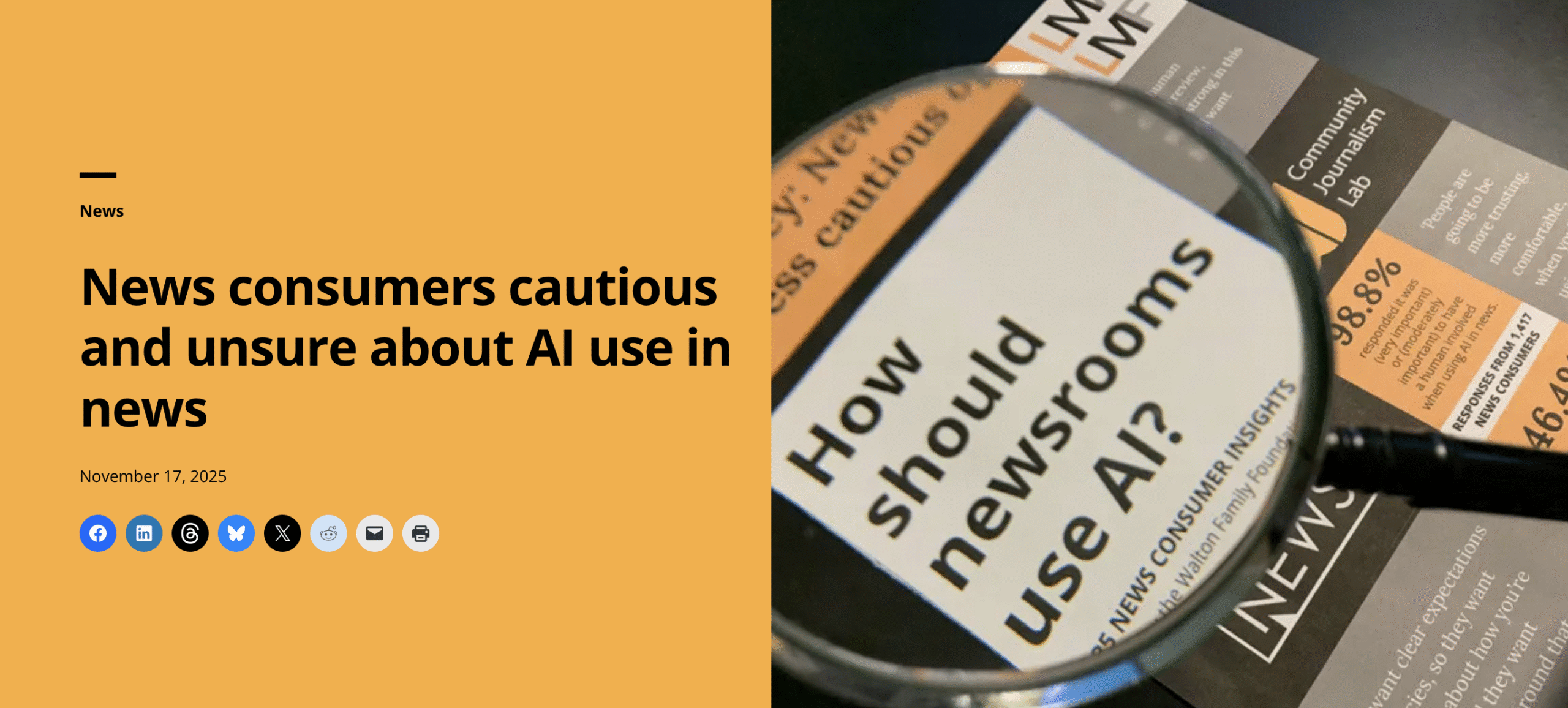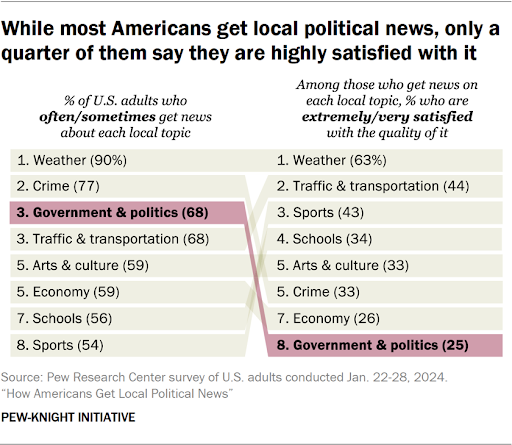
How accessible is your election coverage?
Make your election coverage findable and useful
Recent research shows people want and often consume news about local politics and government but most are unsatisfied with it. On top of that, when it comes to voting, fewer than half of those surveyed (45%) said it is very or somewhat easy to find the information they need to help them vote in local elections. That percentage is lower compared to presidential elections, where 59% of people say it is easy to find the information they need to vote for president.

This research from Pew mirrors the experiences I have had as a news consumer when searching for information to help me vote in local elections. It wasn’t until I left the newsroom that I realized how hard it can be to find helpful and useful information to make decisions on candidates and ballot issues. When I was working in the newsroom, I knew and was investigating all the angles and rumors, or knew someone who was and could get information from them quickly.
With the election coming up, I am sharing what the information-gathering experience is like for me, a voter in San Diego, CA. The point isn’t to call out a specific market or the news organizations there. I’m hoping that sharing this experience provides some insight into what information is findable and serves as a reminder for all journalists to think about how useful and helpful their election content is and most importantly, ask themselves how easy it is to find.
What information I look for when choosing between candidates:
- Their background. This includes their education, professional experience, previous political positions and personal history.
- Their stance on issues I care about. A candidate’s policies in these areas reveal their priorities and how their values align with my own. Are they committed to protecting the environment? Do they support transparency in government, ensuring public access to information?
- What they say they want to do (and if they can do it). Evaluating a candidate’s platform involves understanding their proposed policies and initiatives and whether they have the practical ability to implement those plans. This might include information about the powers associated with the position they are seeking and their previous track record of delivering results.
- Voting record (if it applies). Information about how they’ve voted on past legislation provides insight into their true positions on key issues, beyond what they might currently be campaigning on.
- Who has endorsed/spoken out against them. This can sometimes be helpful if there is context or reasons provided as to why someone is supporting them or speaking out against them.
What information I look for when deciding on an issue (propositions/measures):
- Clear explanation about what the proposition/measure is. This includes knowing if there are any mechanisms for accountability related to the new rules or laws that might be implemented.
- Explanations about what happens if I vote “yes” or “no.” Understanding the potential outcomes of voting either way can help people better decide how to vote. This involves knowing the immediate and long-term effects of the proposition or measure.
- Who has endorsed/spoken out against the prop/measure. Again, this is helpful if explanations are given as to why they are supporting or not supporting and this really depends on if the person or group is one I trust.
- Context about how what’s being proposed relates to the larger issue/problem. Providing answers to questions like: Has something like this been tried before? If so, how did that go? Has this been proposed before and failed? If so, tell me that and explain why it failed or how this is different.
What I found
Last week, I decided to see what information I could find about what would be on my November ballot in San Diego. Using primarily my iPhone, I started with a Google search to find out what was on the ballot. That search led me to the Secretary of State website, the San Diego Registrar website and Ballotpedia, no local news websites. CalMatters was the only news website that appeared on the first page of search results. I then narrowed my search by entering a candidate name or the measure/proposition name.
In most cases, I had to go deeper than the first page of Google search results or use the news filter to get information about a candidate that didn’t come from their own website, social profiles or lawmaker page. Think about that: The independence offered by getting information from journalists, not stakeholders, didn’t show up until the second page of the results.
Also, there was a lot more information for an incumbent. This isn’t that surprising but sometimes the lack of information for the other candidate was surprising. It may take more digging, but we have a responsibility to voters to provide information about who is running, and whether they have served in a public position before or not.
What I found that was helpful
Candidate Q&A’s. These were plentiful but all (that I found) were from the primary in March. Maybe that’s ok since ballots aren’t being mailed until October 7th BUT will there be new ones then? If the same candidates are running, I understand some of the information may be the same, but if you find yourself in this situation, consider it an opportunity to go deeper with candidates and push them to talk more about details for their plans. Also, consider that specific data points about candidates (see my list above) are often buried inside long narratives. That’s not very useful to readers doing ballot research.
Information on bills authored. CalMatters has a section for current lawmakers detailing what bills they have introduced. My favorite section of this page is the committee information and the easy-to-understand explanation about how the committees are different. I also really appreciate the “?” icons throughout the page that provide context and details about what information is being provided. The interest group rankings also provided useful information to help me in making a decision. (A lot of this information would not be available if the candidate is not currently in office). One last favorite from this page: the top/bottom list for most and least votes missed in the current legislative session.

Context on candidates and the position they are seeking. Multiple news outlets did a good job providing context on what a particular position in government does, including making the connection about how that impacts someone in San Diego. I could also find information about how the race fits in with the current issues in San Diego government.
Web page dedicated to explaining state propositions. CalMatters has a voter guide that includes details about the propositions voters will be deciding on in November. I particularly liked how they said they are still in the process of working on updating the page. The page also includes videos explaining each proposition. When I loaded more results from Google, voter guides from other news sources appeared including: The LA Times, Sacramento Bee and an AP story.
Key suggestions
If you’re working on a voter guide or preparing information to help people decide on candidates, measures and propositions is on your to-do list, make sure to:
- Create the content in formats that will be easily accessible and useful. Pull key facts out of long narratives.
- Pay attention to SEO, and think about what voters will be searching.
- Don’t wait. It’s vital to have voter guide information out by the time mail-in ballots are sent out. But if people in your market are being exposed to political ads in general, that’s a good sign that they have the election on their minds. Voter guides can be updated later if information changes. But you can’t go back and be retroactively useful to people who searched for information and didn’t find it.
- If you’re not sure what information voters want, ask them!
For more tips and strategies around building trust with your election coverage and making your content useful, check out our Election Trust Kit.

Assistant director Lynn Walsh (she/her) is an Emmy award-winning journalist who has worked in investigative journalism at the national level and locally in California, Ohio, Texas and Florida. She is the former Ethics Chair for the Society of Professional Journalists and a past national president for the organization. Based in San Diego, Lynn is also an adjunct professor and freelance journalist. She can be reached at lynn@TrustingNews.org and on Twitter @lwalsh.
